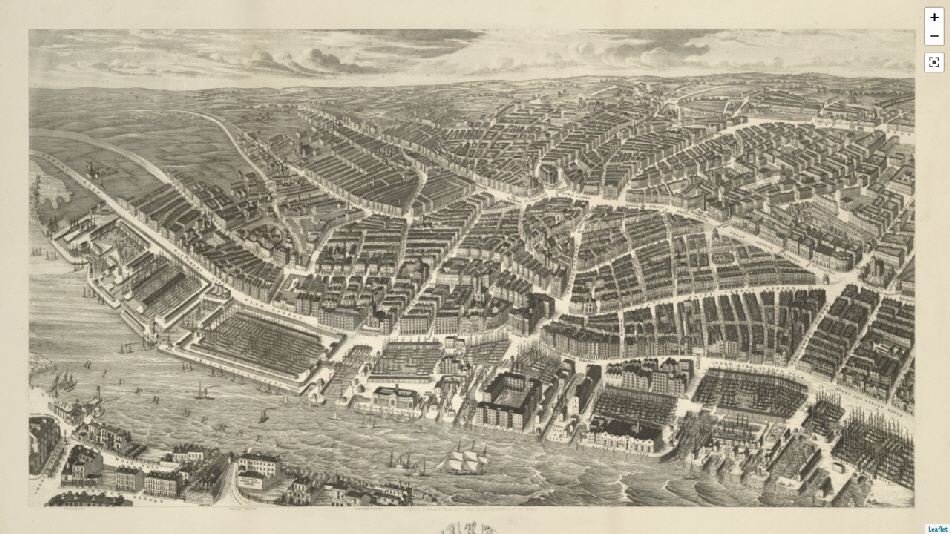Liverpool
Encouraged by the increased availability of lower cost passage, Irish emigrants entered Liverpool in increasing numbers from the mid-1830s. Many used the port as a transit point to a better life in America, but some stayed. In the early years work, and accommodation of a sort, was available, but the situation rapidly changed at the onset of the Irish famine. The combination of a natural disaster and the actions of absent English landlords forced millions of Irish peasant famers off their lands, and into starvation. An escape to England or America seemed like the only choice to most.
Though lacking in the manufacturing base of Manchester and its surrounding Lancashire towns, Liverpool was nonetheless experiencing a period of rapid growth. Until the famine, Irish emigrants were seen a solution to a labour resource challenge, but the influx of tens of thousands in such a short period of time switched perceptions from regarding Irish labour as a solution, to that of a problem. Poor laws were changed so that the Irish could be more easily removed, to reduce the burden on wealthier residents, and to lessen their impact on housing and the city’s creaking sanitation system.
